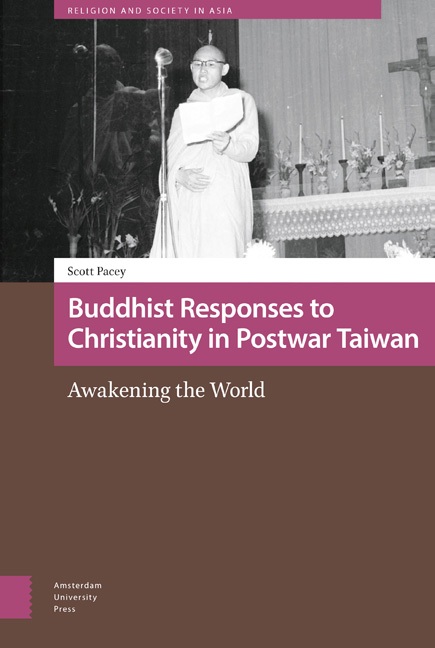Book contents
2 - Buddhism and Chinese Culture
Published online by Cambridge University Press: 21 November 2020
Summary
Abstract
The Buddhists covered in this volume also presented their tradition as compatible with Chinese culture, contrasting it with Christianity. This chapter focuses on the well-known Buddhist Yinshun, who argued that biblical belief conflicted with Chinese cultural values, and introduces Gong Tianmin, a Christian, whose academic study of Buddhism aimed at showing it to be historically derived. Gong's approach is contrasted with Yinshun’s, who, within his own scheme of Buddhist history, took core beliefs to be fundamentally “true”. The chapter will show that the Buddhist writers, covered here, displayed a preoccupation with Western values such as freedom, democracy and egalitarianism, but also with defining these as Chinese—and hence, as Buddhist.
Keywords: communism, anti-Semitism, Yinshun, Gong Tianmin, Genesis, God
“The teachings of Jesus were spoken two thousand years ago in Judea—they were not spoken in the China of today. They are therefore certainly not suited to China.” Thus declared the scholar Zhang Chunyi (1871-1955) in Buddhist Christianity (Fohua Jidujiao). Although this was published in Shanghai in the 1920s, it was reprinted in Taiwan in 1956—a year after Zhuyin's publication of A Comparison of Buddhism and Christianity. Zhang himself was originally a Christian, but converted to Buddhism in 1925 under the influence of Taixu, who he first heard speak in Beijing in 1919. He developed the view that Christianity was an expedient presentation of Buddhist teachings, but that Buddhism itself held the true essence of Christianity. He thus urged his compatriots to reject it, and embrace Buddhism instead.
As purveyors of a partial truth, Zhang had a very dim view of Western missionaries. They “lack true religious knowledge,” he wrote. Westerners “are barbaric and superficial,” while missionaries themselves “do not revere their ancestors or parents. They demand that we … become animals” and “foolishly call Jesus God, contemptuously regard the bodhisattvas and sages of the East as human beings [rather than deific figures], and extinguish this land's true culture.” Not only did they deny Confucian filiality and Buddhism, the level of Western missionaries was “suited to proselytizing in Africa, and not suited to proselytizing in China.”
- Type
- Chapter
- Information
- Buddhist Responses to Christianity in Postwar TaiwanAwakening the World, pp. 89 - 120Publisher: Amsterdam University PressPrint publication year: 2019

